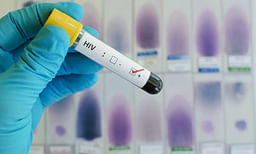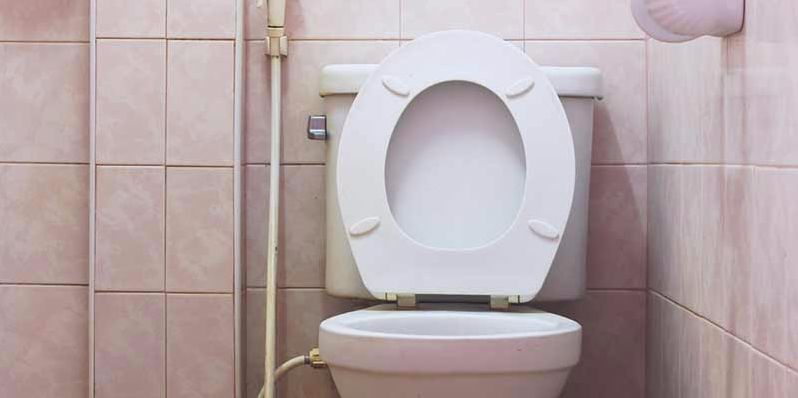QUESTIONS & ANSWERS
10 million+questions answered by doctors
My son is a 16 year old golfer and plays very well..
It is important to seek help to address the anxiety problem. The key is to find a psychiatrist or psychologist who can c...Continue Reading
I have an sexual problem. When ever me and my gf h..
You need to understand the anatomy and physiology of human sexual organs to solve your problem. The production of sperms...Continue Reading
I am suffering from anal fissure and constipation...
Bleeding के साथ itching और pain दूसऋ साइड पर फ़िस्सुरे हों एक लक्षण है | आपको दिन में दो - तीन बार sitz bath (गर्म पानी म...Continue Reading
My doctor prescribed meprate tablets because it wa..
Continue meprate for 20 days. Then stop them....Continue Reading
HIV window period 6 month se jada ho Sakta hai kya..
Dear user. Thanks for the question. I can understand. HIV spread through Contact between broken skin, wounds, or mucous ...Continue Reading
Ask a free question
Get FREE multiple opinions from Doctors
QUIZZES
18 million+times people busted their healthcare myths
Lybrate: India's Best Patient Consulting Portal
Are you struggling to find a trusted doctor for optimal medical care? Look no further; search on Lybrate! As India's premier patient consulting portal, Lybrate provides access to a database of over 150,000 doctors with expertise in diagnosing and treating conditions across various medical specialties. With Lybrate, doctor consultations become effortless through a seamless appointment scheduling process, granting you quick access to highly experienced doctors in just a few clicks. At Lybrate, we are building the future of healthcare delivery by providing expert medical care on the go.
Lybrate Presence in India
Lybrate currently boasts a network of 150+ clinics, 800+ partner hospitals, a panel of 400+ super specialist surgeons, and a database of over 1,50,000 doctors. Our presence spans 7 metro cities in India - Mumbai, Pune, Delhi, Bangalore, Hyderabad, Chennai, and Kolkata - as well as in several Tier-2 and Tier-3 towns, including Lucknow, Kanpur, Chandigarh, Jaipur, Indore, Nagpur, Bhopal, Ludhiana, Patna, Bhubaneswar, Coimbatore, Ahmedabad, Agra, Gwalior, Kochi, Vizag, Surat, Noida, Gurgaon, Faridabad, Ghaziabad, Jammu, and Guwahati.
We are continuously expanding our reach to serve people across the nation and beyond, providing them with holistic and seamless medical care. For expert medical care on the go, choose Lybrate.
Connect with Best Doctors in India for Various Categories
At Lybrate, we are committed to delivering comprehensive patient care spanning various medical specialties.
Proctology: Specializes in the diagnosis and treatment of disorders of the rectum and anus, including but not limited to hemorrhoids, anal fissures, and colorectal conditions.
Laparoscopy: Involves the treatment of various abdominal and pelvic conditions using minimally invasive surgical procedures. These surgeries employ small incisions and a camera for diagnosis and treatment, resulting in a shorter recovery period.
Vascular: Focuses on conditions affecting blood vessels, arteries, and veins, with deep vein thrombosis, peripheral artery disease, and varicose veins being the most common conditions.
Urology: This specialty involves the diagnosis and treatment of conditions affecting the urinary tract and male reproductive system, including kidney stones, bladder and prostate issues, etc.
Gynecology: This medical specialty deals with conditions of the female reproductive system such as ovarian cysts, uterine fibroids, and infertility. Pregnancy care is also an integral part of gynecology.
ENT: Disorders of the ear, nose, and throat fall under this medical specialty. Common conditions addressed by ENT specialists include throat infections, sinusitis, hearing loss, congestion, and vertigo.
Aesthetics: Cosmetic procedures aimed at enhancing a person's physical appearance are part of aesthetics. Some procedures include liposuction, tummy tuck, breast Lift surgery, breast augmentation surgery, and rhinoplasty.
Dermatology: Dermatology is a branch of medicine that deals in the diagnosis and treatment of conditions of the skin and hair. Some dermatological treatments include Botox, Derma Fillers, Face Thread Lift, and Hair Transplant.
Orthopedics: Specialists in this field diagnose and treat musculoskeletal conditions affecting bones and muscles, such as joint pain, arthritis, and fractures.
Ophthalmology: This specialty involves the management of treatments affecting eye health, ranging from refractive errors to more serious conditions such as cataracts and glaucoma.
Fertility: This specialty focuses on the diagnosis and treatment of conditions of the reproductive system. In vitro fertilization and intrauterine insemination are some common fertility treatments offered under this specialty.
Weight Loss: Weight loss involves safe and effective methods for achieving a healthy body weight. Bariatric Surgery and Intragastric Balloon treatment are examples of weight loss procedures.
Dentistry: Dentistry encompasses diagnosis and treatment of diseases and conditions affecting the teeth and gums. Common treatments include braces, aligners, and dental implants.
FAQs
Q. How does a care coordinator help a patient at Lybrate?
Ans. During the initial interaction, the care coordinator carefully listens to the patient's concerns, including the symptoms they are experiencing, and suggests the best treatment options. They then assist the patients in scheduling their OPD appointments and help them connect with the best doctors based on their requirements.
Q. Does Lybrate have its own hospitals?
Ans. No, Lybrate does not have its own hospitals. We work in association with other hospitals to provide holistic care to our patients. Our doctors and surgeons perform procedures at our partnered hospitals, utilizing the infrastructure of the respective hospitals.
Q. Can I consult with a doctor online at Lybrate?
Ans. Certainly! Lybrate provides seamless online doctor consultations. We offer convenient online consultation options for patients to consult with experts on the go. Consultations can be done via calls or online chats. Our doctors ensure a thorough discussion with patients during these consultations and suggest the best course of action.
Q. Does Lybrate have insurance coverage for all surgeries?
Ans. Lybrate does not provide insurance. However, we do accept insurance for different procedures and surgeries (as applicable). We also have a dedicated insurance team to assist with insurance claims and help you maximize the benefits of your policy. You can obtain information about your policy, including the terms and conditions, by connecting with your insurance provider.
Q. Does Lybrate provide any emergency surgical treatment?
Ans. No, Lybrate currently deals in elective surgeries only and does not provide emergency surgeries. Elective surgeries are surgical procedures that are scheduled in advance and are not of an emergency nature.
Q. In which cities is Lybrate functional?
Ans. Lybrate is functional in 7 metro cities across India: Mumbai, Pune, Delhi, Bangalore, Hyderabad, Chennai, and Kolkata, as well as in several Tier-2 and Tier-3 towns, including Lucknow, Kanpur, Chandigarh, Jaipur, Indore, Nagpur, Bhopal, Ludhiana, Patna, Bhubaneswar, Coimbatore, Ahmedabad, Agra, Gwalior, Kochi, Vizag, Surat, Noida, Gurgaon, Faridabad, Ghaziabad, Jammu, and Guwahati.















